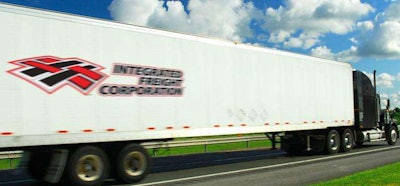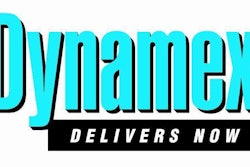
Integrated Freight Co. on Wednesday, Dec. 1, reported financial results for its fiscal second quarter ended Sept. 30.
For the six months ended Sept. 30, the Sarasota, Fla.-based company reported revenues of $15,372,240 as compared to revenues of $8,832,631 for the six months ended Sept. 30, 2009, an increase of $6,539,609 or 74.04 percent due to two primary factors: the acquisition of Triple C Transportation in May 2010, and the increase in freight revenue in correlation to the U.S. economy. The company reported a loss from operations of $424,422 as compared $1,108,165, a decrease of $683,743 or 61.70 percent primarily as a result of increased sales and lower operating expenses as a percentage of sales.
The company reported a net loss of $854,088 as compared to a net loss of $1,603,996, a decrease of $749,908 or 46.75 percent resulting from increased sales and lower operating expenses as a percentage of sales.
“We had a successful quarter in terms of achieving high growth rates with respect to revenue and infrastructure,” said Paul Henley, chief executive officer of Integrated Freight. “As we continue to work in achieving critical volume of revenue, we expect the benefits of our integration model to occur, thus improving the net results for the company in the quarters ahead.”
Morris Transportation had revenues of $5,804,313 compared with revenues of $5,407,832, an increase of $396,481 or 7.33 percent. Smith Systems Transportation had revenues of $3,793,984 compared with revenues of $3,424,799, an increase of $369,185 or 10.78 percent. Triple C Transportation had revenues of $7,411,819 compared with revenues of $7,160,133, an increase of $251,686 or 3.52 percent.
The company said it experienced positive cash flows and improvements in its working capital positions at the subsidiary level during the quarter ended Sept. 30, 2010, compared to the same quarter in 2009. Integrated Freight said that as it begins to consolidate the duplicated functions among its subsidiaries, it is expected to achieve further savings that will be reflected in improved cash flows and working capital positions.
The company said the legal and accounting expenses associated with acquisitions and first-time audits of acquisition candidates have resulted in greater cash outflows and expenses in these categories than it expects to experience when its acquisition program matures in the future. Integrated Freight said it does not expect a positive change in these factors until it completes additional acquisitions that will enable it to spread the parent’s expenses associated with being a publicly traded and reporting company and costs of future acquisition over a larger revenue and cash flow base.
Management believes that the company is in a recovering truckload freight market as the operating environment grew increasingly positive during the first fiscal quarter of 2011. This improvement marks the second consecutive quarter with increased year-over-year average miles per tractor, and market share growth continued in the calendar fourth quarter of 2010. The company expects the upward trend to continue in future quarters.
Even though management is optimistic about the economic recovery, the transportation industry is generally cash lean with overleveraged balance sheets. Integrated Freight said it intends to invest more heavily as demand for truckload services improves and believes it is well-positioned to grow its business as the recovery continues to develop.
Integrated Freight said it believes that its level of profitability, fleet renewal strategy and use of independent contractors will enable it to internally finance attractive levels of fleet growth when demand conditions are right. The company said that based on its growing network, a history of low-cost operations and anticipated access to substantial capital resources, it has the competitive position and ability to perpetuate its model based on leading growth and profitability.











